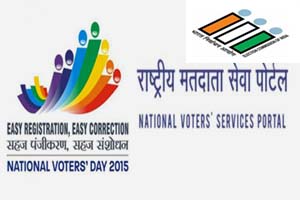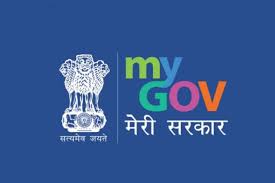HPL's VIGILANCE
Central Vigilance Commission - Role and Functions :
The monitoring of the vigilance activities, implementation of the anti-corruption measures in the Public sector, maintenance of purity, integrity and probity in the public sector viz, Public Sector Undertakings, Central Government Departments, Ministries and Public Sector Banks is done by the Government through Central Vigilance Commission. It acts as the apex body for exercising general superintendence and control over the vigilance matters in administration. The Commission exercises a general check and supervision over vigilance cases and anti corruption work in the organizations within its jurisdiction.
The Commission was set up in 1964 on the recommendations of the Sanathanam Committee i.e., Committee on Prevention of Corruption. The functions of the commission are advisory in nature. The Commission has been converted into a statutory body w.e.f 25.8.1998 through the CVC Ordinance. Presently the Commission has its status based on an executive order dated 4.4.1999.
Jurisdiction & cut off level of CVC
The Commission’s jurisdiction is co-terminus with the executive powers of the Union. It can undertake any inquiry into any transaction in which a public servant is suspected or alleged to have acted for an improper or corrupt purpose; or cause such an inquiry or investigation to be made into any complaint of corruption, gross negligence, misconduct, recklessness, lack of integrity or other kinds of mal-practices or misdemeanours on the part of a public servant. The Commission tenders appropriate advice to the concerned Disciplinary Authority in all such matters. For practical considerations, the Commission has restricted its jurisdiction to the officers of the rank of scale III and above in the public sector banks. However, in composite cases involving officials who fall in the Commission’s jurisdiction along with others who do not, the case as a whole has to be referred to the Commission for its advice. Such composite references enable the Commission to take an overall view of the individual accountabilities in the transaction.
Where a reference has been made to the Commission in respect of officers not within the jurisdiction of the Commission and award staff by virtue of it being a composite case, it will be not necessary to approach the Commission for second stage advice in respect of such officials provided the Commission’s advice has been accepted by the Banks.
The officials working /recruited directly in the Bank’s subsidiaries are also covered under the Vigilance setup of the parent Bank.
Consultation mechanism of CVC
(i) First stage reference of CVC
The Disciplinary Authority on considering the investigation report decides on the basis of the facts disclosed in the preliminary enquiry, whether the complaint should be dropped or warning/caution administrated or regular departmental proceedings launched for minor or major penalty as the case may be. The decision of DA at this juncture is considered to be ‘Tentative’ and complete records of the case along with ‘Tentative Decision’ of the DA is required to be referred to CVC for officials within its jurisdiction. The Commission will examine the matter and tender its ‘first stage advice’ which is considered by the DA before proceeding further.
(ii) Second stage reference
On conclusion of the Enquiry proceedings and before passing any final order, the DA is required to consult CVC for its “Second Stage Advice” along with complete case records. CVC will examine the case records, including the Enquiry Report and tender its ‘Second Stage Advice’ which is required to be considered by the DA before passing final orders.
(iii) Other references
Advice of CVC is also required to be obtained when the Commission has referred a particular matter to the Bank.
(iv) Reference to CVC for Reconsideration
If the Disciplinary Authority (DA), in a case, does not propose to accept the Commission’s advice, the case may be referred back to the Commission, with prior approval of the Chairman & Managing Director. The Commission’s advice is necessary regardless of whether the disciplinary authority proposes to take “severer” or “lighter” action than that recommended by the Commission, Decisions taken in a manner, other than that mentioned above are treated as cases of non-acceptance of the Commission’s advice and reported in the Commission’s annual report which is presented to the Parliament. As a rule, the Commission entertains only one request for reconsideration which is to be referred to the Commission within one month of receipt of first stage advice and two months receipt of CVC’s second stage advice.
(v) Disagreement with the CVC
When the DA decides to disagree with the advice of the Commission in any particular case, the matter is required to be placed to the CMD with whose approval, the CVC is to be advised giving the reasons for disagreement.
VIGILANCE MECHANISM IN HPL
The major thrust of Vigilance Department in HPL is preventive and surveillance vigilance through educating the officers and employees about procedures and guidelines. However, punitive measure and system improvement are also taken by the Vigilance Department as and when required.
It can undertake any inquiry into any transaction in which a public servant is suspected or alleged to have acted for an improper or corrupt purpose; or cause such an inquiry or investigation to be made into any complaint of corruption, gross negligence, misconduct, recklessness, lack of integrity or other kinds of mal-practices or misdemeanours on the part of a public servant.








